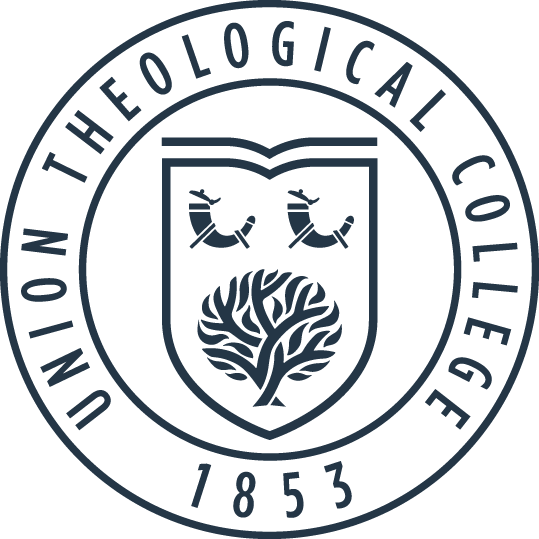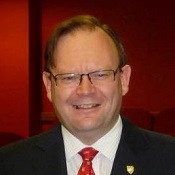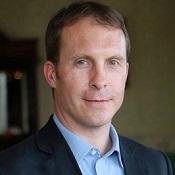MTh in Reformed Theology

Delivered exclusively by Union Theological College, this taught Masters allows students to gain advanced historical and theological knowledge of central Christian doctrines.
Whether you’re studying online or on site, all of Union Theological College’s degrees are marked by strict academic standards approved by the Faculty and regulated by the Quality Assurance Agency for Higher Education (QAA). Online study is subject to the same entry requirements as our on-campus degrees: there is no difference in the overall workload, and the qualification you get is of equal value.
The difference is simply in the way in which the course is delivered. As well as all the conventional benefits of taking your theological education to a new level, our new online programme has some particular benefits associated with it:
- Earn a recognised UK master’s degree from almost anywhere in the world (there are no residential requirements)
- Have access to the teaching of leading theologians such as Sinclair Ferguson and Fred Sanders
- Flexibility to study at a time and a pace that best suits your own needs
- Learn as part of a rich and diverse online community
The platform that will deliver content and allow you to interact with faculty and students is BibleMesh. For every taught module this virtual learning environment provides video lectures, discussion forums, quizzes for self-assessment, digital copies of the textbook and the core primary text. You will be able to benefit from the Cerego app, an online tool for your desktop, tablet or mobile device that builds on the latest in cognitive science to help you learn faster and remember longer.
Educational aims: A deepening appreciation of the role theology plays in the life of the church
This programme aims to provide:
- For a high degree of engagement, interaction and critical analysis within the field of Reformed Dogmatics
- The knowledge and skills necessary to produce original research, with the ability to adopt a critical distance from their material and to evaluate it in a scholarly manner
- For critical reflection on one’s own particular standpoint, and a good understanding of the methodological and hermeneutical issues that are raised
- An appreciation of the vocation of the Christian theologian
Programme Details
Master of Theology
Gain advanced historical and theological knowledge of central Christian doctrines through the full MTh programme. Comprised of two parts, the first part consists of four taught modules each worth 30 credits. Part two is a 15,000-word dissertation weighted at 60 credits.
12 months full-time or part-time equivalent of 4 years
- £6,120 total programme fee (UK/ROI)
- £16,440 total programme fee (International, including EU)
- Annual registration: £190
- 4 required modules and 1 dissertation (180 credits total)
- Program delivered fully online
- 1-on-1 academic tutor
- Master of Theology awarded
Modules in this Programme
1
Creeds, Councils and Confessions
Videos by Justin Holcomb will lead you through the church’s great statements of faith and summarise the key points of these crucial and contested doctrines. You’ll have questions to answer that help you engage in a careful reading of the Westminster Confession of Faith and Michael Allen and Scott Swain’s Reformed Catholicity: The Promise of Retrieval for Theology and Biblical Interpretation (Baker, 2015). This will prepare you for a 3,000-word guided research essay.
- 30 credits
- 3-4 months
2
Reformation Theology: Past, Present and Future
This module will ensure you gain familiarity with the Reformed tradition from its roots in medieval scholasticism, through the Reformation and Post-Reformation era, right up to current trends in modern Reformed theology. You will be helped by watching seven hours of lectures by John Woodbridge and Frank James. Once again, you’ll be reading a primary text and a textbook – in this case Book 1 of Calvin’s Institutes of the Christian Religion and Reformation Theology: A Systematic Summary (Crossway, 2017). This will leave you well placed to write a 3,000-word essay in the area.
- 30 credits
- 3-4 months
3
The Doctrine of the Holy Trinity
You’ll watch the Fred Sanders lectures and read your way through his The Triune God (Zondervan, 2016). You’ll engage in a careful guided reading of John Owen’s Communion with the Triune God with the help of Union faculty member and Owen specialist, Dr. Martyn Cowan. Once again, the major piece of assessment for this module will be a guided research essay.
- 30 credits
- 3-4 months
4
The Doctrine of the Holy Spirit
Your final video lectures will be given by Sinclair Ferguson and these will be complemented by reading the book by Christopher Holmes, The Holy Spirit (Zondervan, 2015). In this module you’ll be helped in your engagement with Jonathan Edwards’ Treatise on Grace by Michael McClenahan, Professor of Systematic Theology at Union and a specialist on Edwards. This module concludes with another 3,000-word written assessment.
- 30 credits
- 3-4 months

Capstone Dissertation
The feedback received on the 12,000 words of essays will have helped you to nurture your critical research and writing skills in preparation for the 15,000-word capstone dissertation. In this thesis you will choose to specialise in an area of advanced Reformed Theology and exercise your research skills and integrate your knowledge from the rest of the course to hone your scholarship.
- 60 credits
- 4-12 months
Schedule & Fees
Schedule for full-time students
| Spring Semester | Summer Semester | Autumn Semester |
|---|---|---|
| Jan – April | May – August | Sept – Jan |
| Creeds, Councils and Confessions | The Doctrine of the Holy Trinity | Dissertation writing |
| Reformation Theology | The Doctrine of the Holy Spirit |
Potential pathway for part-time students
| Spring Semester | Autumn Semester | Spring Semester | Summer Semester | Final Year |
|---|---|---|---|---|
| Jan – April | Sept – Jan | Jan – Apr | May – Aug | Jan – Jan |
| Creeds, Councils and Confessions | Reformation Theology | The Doctrine of the Holy Trinity | The Doctrine of the Holy Spirit | Dissertation Writing |
Fees information
Tuition fees are subject to annual revision and are typically increased by approximately 4% per annum for programmes longer than one year. For part-time intermittent study, the fees are payable for each module as you study (payable 6 weeks in advance of each module).
Master of Theology in Reformed Theology:
- UK/ROI
- Per Module: £1,053.75
- For Dissertation: £1,500
- Programme Total: £5,715
- International (including EU)
- Per Module: £3,073.75
- For Dissertation: £3,500
- Programme Total: £15,795
- Fee information is subject to change and is for guidance only.
Admissions Requirements
Please check that you meet the entry requirement for this programme before you submit an application.
Typically, a 2.1 honours degree or above or equivalent qualification acceptable to PTFI where Theology and/or Divinity is the main subject area OR where it is one of the joint subjects in an honours degree. In the case of the latter, the modules in Theology and/or Divinity must be of 2.1 level or above, OR a 2.1 honours degree or equivalent qualification acceptable to PTFI in a subject other than Theology/Divinity, and a Graduate Diploma in Theology with normally at least 5 out of the 6 modules with a mark of 60% or above.
Note: For overseas students a 2.1 honours degree is normally equivalent to a Cumulative Grade Point Average of 3.3 or higher from an accredited institution.
Normally we require all applicants whose first language is not English to have one of the following qualifications as evidence of their English language ability:
- An undergraduate or master’s degree that was taught and assessed in English in a majority English-speaking country as defined by UK Visas and Immigration (this includes the Union GradDip and GradCert)
- International English Language Testing System (IELTS) Academic module (not General Training): overall score of 7.0 with at least 6.5 in each category (this is our preferred test)
- Pearson Test of English, (PTE Academic): 69 overall with a minimum of 62 in each communicative skill
- Cambridge English Scale (CAE or CPE): 185 overall, with a minimum of 176 in each skill
- TOEFL iBT: 100 overall with a minimum of 24 in writing and 23 in each of the other skills
For those whose first language is not English please note the following:
- Degrees taught and assessed in English must be no more than three years old at the beginning of your degree programme.
- Language tests must be no more than two years old at the beginning of your degree programme.
The application deadline is 31 days prior to the course start date but we recommend that you submit your application as soon as possible.
- This must include your name and date of birth exactly as they appear on your passport and your correspondence address during the application process
- This should take the form of a document of one or two pages highlighting your academic achievements and any relevant experience.
- Ideally an essay submitted for assessment in your most recent qualification
- The piece should be around 2,000 words in length (excluding references and bibliography)
- It will be used to assess your ability to engage in critical thinking and to construct and defend an argument.
- (300-400 words) in which you provide a personal statement explaining your motivation for applying for this particular programme as either a full-time or part-time student
- At least one of which must be an academic reference
- Professional (institutional or organisational) email addresses should be used whenever possible
- In the ‘role’ field of the application form you should enter the referee’s position – that may be their job title (e.g. Director of Studies, Personal Tutor, or Head of Department) or their position relative to you (e.g. Line Manager or Minister)
- Your references should outline your intellectual ability, academic achievement, motivation, and ability to engage in self-motivated study.
- These must be verified official transcripts that provide your full academic history of courses taken and grades achieved (a degree certificate is not equivalent to a transcript)
- If you are currently a student who has not yet completed your degree please provide an interim transcript of your degree progress and achievement to date (in this case we will consider your application on a conditional basis)
- If these documents are not in English an official English translation must be supplied with full contact details either the professional translator, the institution that issued the transcript or the authorised notary.
Language tests must be no more than two years old at the beginning of the degree programme. You must submit evidence that you meet the College’s English language requirement for your course, if:
- your first language is not English, or
- your first language is English but you are not a national of a majority English-speaking country recognised by UK Visas and Immigration (UKVI) i.e.:
- Antigua and Barbuda
- Australia
- The Bahamas
- Barbados
- Belize
- Canada
- Dominica
- Grenada
- Guyana
- Ireland
- Jamaica
- New Zealand
- St Kitts and Nevis
- St Lucia
- St. Lucia and the Grenadines
- Trinidad and Tobago
- United States of America
- You do not need to prove your knowledge of English if you have completed a qualification degree qualification in the UK of a qualification equivalent to a UK degree in:
- Antigua and Barbuda
- Australia
- The Bahamas
- Barbados
- Belize
- Canada
- Dominica
- Grenada
- Guyana
- Ireland
- Jamaica
- New Zealand
- St Kitts and Nevis
- St Lucia
- St. Lucia and the Grenadines
- Trinidad and Tobago
- United States of America
- For further details please see https://www.gov.uk/tier-4-general-visa/knowledge-of-english
- One of the following documents to confirm your identity, name and date of birth:
- A copy of the photo page of your valid passport (this is our preferred option)
- A copy of a national identification card or driving licence
- If you have changed your name you must supply evidence e.g. a marriage certificate
- Upon submission of your application you will be supplied with details of how to pay a non-returnable application fee of $75.
Frequently Asked Questions
As an alternative to traditional residential study, online learning offers flexibility and utilises the best in digital learning resources.
Our online MTh and PGDip offer the same high standards of teaching, assessment and award as its campus-based equivalents.
Your degree certificate will be identical to the degree certificates received by students who have completed their study on campus in Belfast.
The General Assembly of the Presbyterian Church in Ireland has had a theological training institution in Belfast since 1853. Initially called Assembly’s College, it was later renamed Union Theological College by Act of Parliament. In 1881 the college was awarded a Royal Charter empowering it to grant its own degrees in theology. This authority resides in the theological professors of the college who together constitute the Presbyterian Theological Faculty, Ireland (PTFI). Union Theological College programmes are awarded by this body.
The PTFI is recognised as a university under UK law and the work of the college is regulated by the independent body that maintains standards within UK higher education sector and by the Council for Training in Ministry of the Presbyterian Church in Ireland.
Master of Theology in Reformed Theology:
- UK/ROI
- Per Module: £1,053.75
- For Dissertation: £1,500
- Programme Total: £5,715
- International (including EU)
- Per Module: £3,073.75
- For Dissertation: £3,500
- Programme Total: £15,795
- Fee information is subject to change and is for guidance only.
The BibleMesh platform will provide you with digital copies of each module’s core primary text and textbook. You will also have access to the e-book collection of Union College’s Gamble Library. Some other books may have to be purchased.
In UK higher education a full-time postgraduate course is designed to involve the same time commitment as full-time employment, so taking on a part-time degree is like taking on a part-time job. All of this is calculated by way of CATS points (Credit Accumulation and Transfer Scheme). The taught modules in our Masters programme are weighted at 30 CATS points. Our programme is designed to offer real flexibility with teaching occurring over a 12-week semester and students having a further three weeks to submit their final long written piece of work. Students work at different rates, but you would technically need to allow for 20 notional hours of work per week during any given semester.
There are four compulsory core modules to the programme.
For the taught modules students can expect to watch a number of video lectures and engage in directed reading assignments. There will be online tests or quizzes, discussion forums, the Cerego learning app and written assignments. You will also have access to a number of books through the BibleMesh e-book reader and the e-books of the Gamble Library at Union.
The full-time course lasts twelve months. The part-time course may be completed in a period of time between two to four years.
While you study with us, you will be well supported by the programme team with a wide variety of additional one-to-one support.
Every student is assigned a personal tutor who will:
- Guide you through the matriculation process and the course schedule
- Help you become a confident, active member of the online learning community
- Help you with any concerns or problems that might affect your studies
Students access materials, discussion forums and a range of learning tools via the Virtual Learning Environment. Our platform is designed to be easy to use and we incorporate familiarisation training into the programme induction. Tech support will be via BibleMesh.
You will also be able to take advantage of digital library access to the e-books in Union’s Gamble Library.
MTh Students are also provided with a dissertation tutor to support them in the final three months of the presentation of their 15,000-word research project.
Please email our programme administrator at research@union.ac.uk who will be happy to try to help you.
Endorsements



About Union Theological College
Union Theological College in Belfast, Northern Ireland, has a history of providing theological education that stretches back to the founding of the original Presbyterian College there in 1853. The College’s primary task is to prepare students for ministry in contemporary Ireland. Union also welcomes students from all backgrounds and perspectives to study Christian theology at undergraduate and postgraduate level in a community of faith and scholarship.
